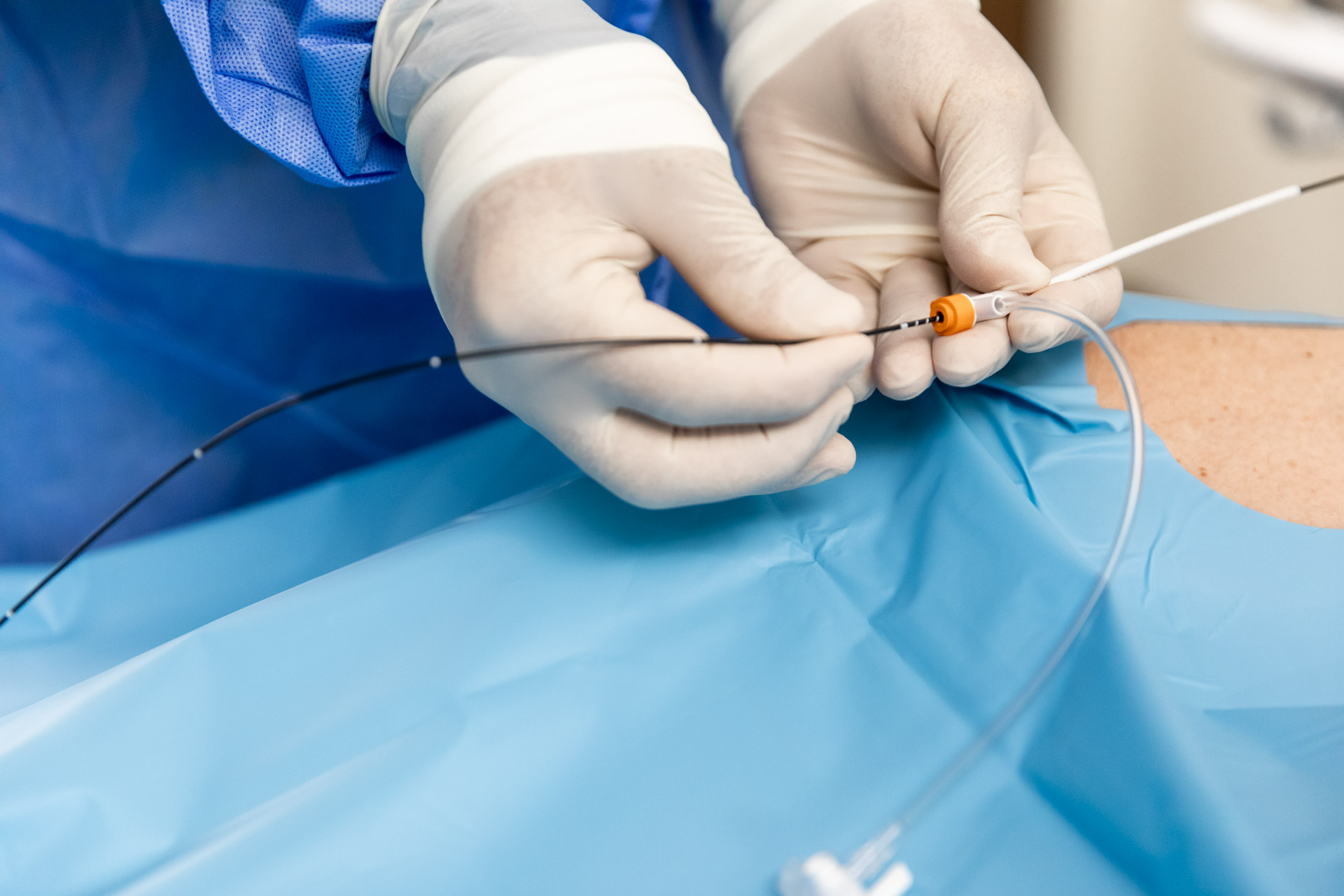There are numerous potential treatments available at Ozark Regional Vein & Artery Center. Patients turn to our expert staff to help them treat everything from spider and varicose veins to deep vein thrombosis and vein disease.
Certified professionals perform all of our treatments using the most advanced technology available. Some treatments will be more intense than others, depending on factors such as patient preference, provider recommendation, severity of the vein issue, and more.
Radiofrequency ablation is well known as one of the most popular, and seamless ways to treat venous reflux and varicose veins in the world. Those, in particular, suffering from chronic venous insufficiency have seen faster recoveries thanks to this method of treatment. This has made radiofrequency ablation an incredibly popular and sought-after solution to painful and dangerous varicose veins and venous reflux.
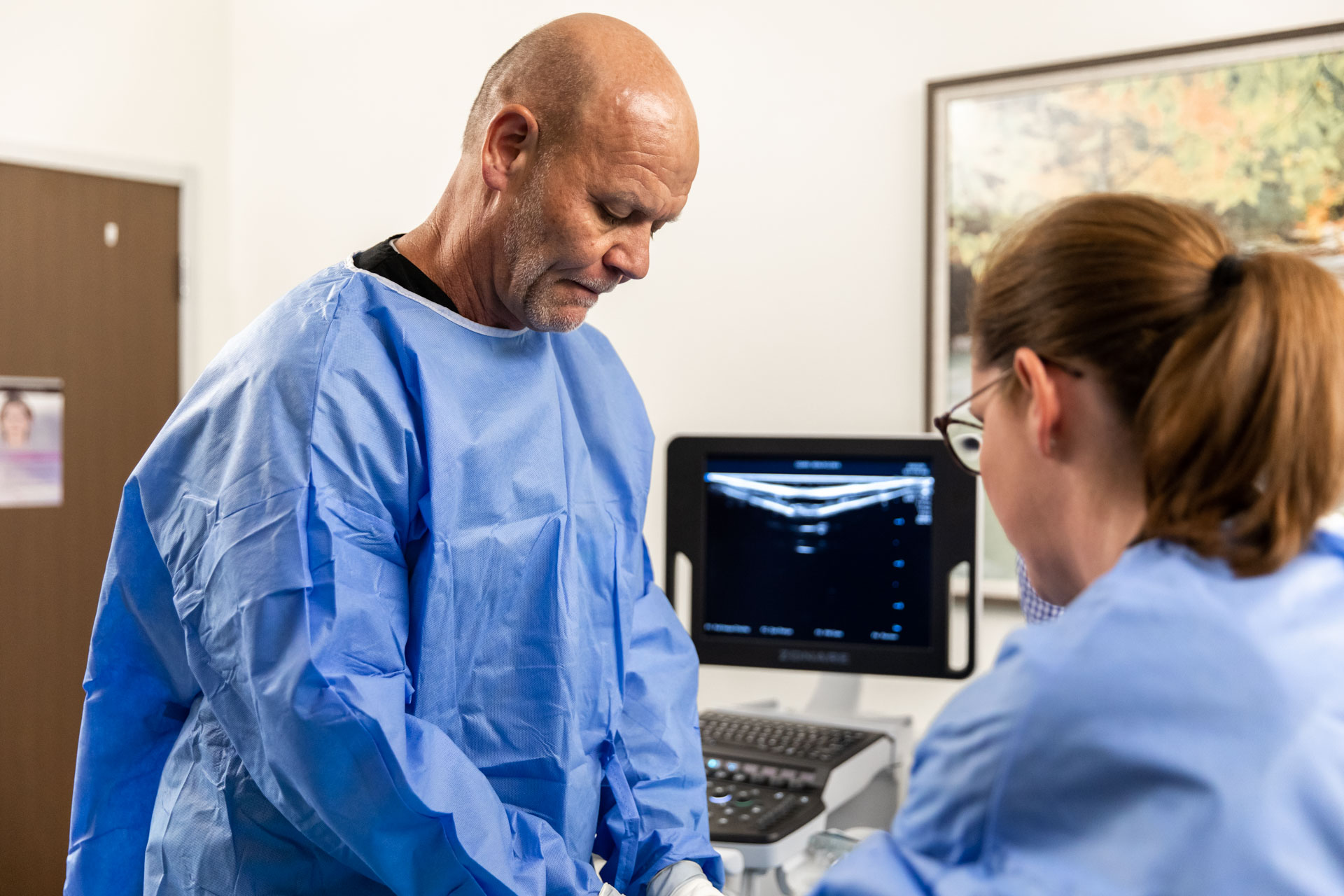
Naturally, though, this raises a great deal of interest in where people suffering from varicose veins or venous reflux can receive this treatment. That’s where the Ozark Regional Vein & Artery Center comes in!
Your Trusted Vascular Specialists
You know Dr. Haney and the incredible team at the Ozark Regional Vein & Artery Center for their work as premier vein experts in Rogers. With patients from all across Northwestern Arkansas, from Bentonville down to Fayetteville, the Ozark Regional Vein & Artery Center can now provide you with world-class arterial disease care in Rogers.
Dr. Christopher Stout, the newest addition to the Ozark Regional Vein & Artery Center family, is a world-class vascular surgeon with specialties in angioplasty, arterial stenting, and limb recovery. Dr. Stout is highly trained in diagnosing, treating, and managing diseases and conditions affecting arteries and veins.
As we’ve learned from our years of providing care to our community, many people haven’t had the opportunity to learn about vascular health. We’re committed to providing exceptional patient education to everyone we work with, which is why this blog will discuss, in detail, one of the cutting-edge procedures that the team at the Ozark Regional Vein & Artery Center is known for.
This blog will provide thorough answers to the most common questions we receive about radiofrequency ablation and explain what to expect from the procedure and recovery period!
So, what exactly is Radiofrequency Ablation?
The treatment is safe and highly effective, using radiofrequency energy to heat and treat the problematic vein. After applying a local anesthetic, Dr. Haney uses ultrasound guidance to insert a tiny catheter into the treatment area. Once in the area, radiofrequency energy is used to heat the vein walls safely from inside the catheter’s sheath so that the vein collapses.
The ClosureFast™ catheter heats an exact 7-centimeter segment of a vein for 20-second intervals, guided with an ultrasound scan.
The heat from the radiofrequency makes the targeted vein collapse permanently. This minimally invasive procedure can leave minor scarring at the puncture site; however, scars typically fade with time.
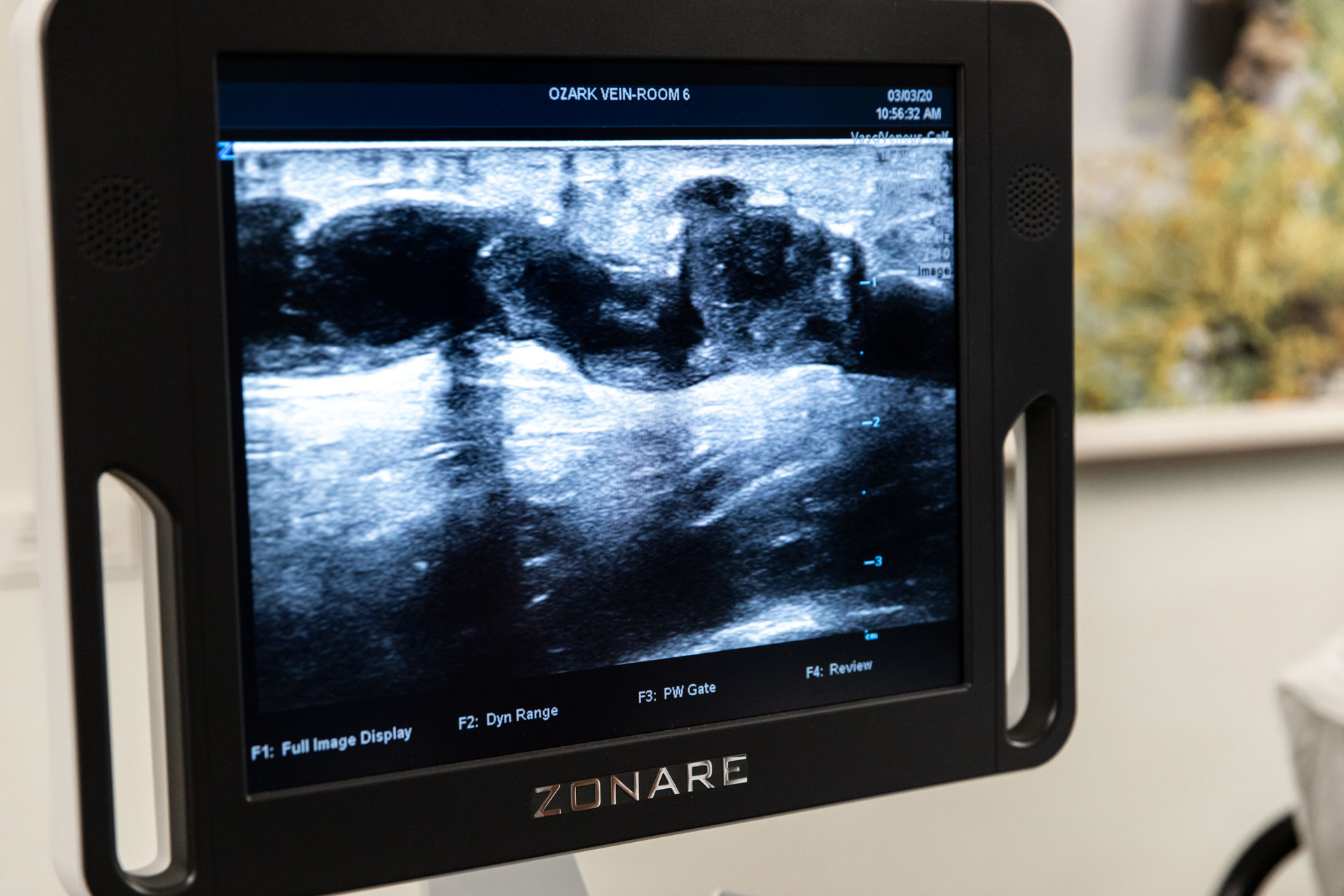
We’ve found that people suffering from venous reflux recover much faster with radiofrequency treatment than some alternatives. This naturally makes patients incredibly curious to learn more about it.
Common Questions
Some of the most frequently asked questions about radiofrequency ablation in Rogers:
1. Don’t I need that vein?
Short answer: no. If you’re having issues with a particular vein and need it ablated, that vein is already no longer contributing to your circulatory system. So, ablating it is the wisest choice. You don’t technically need every single vein in your body. Ablating one and closing it off to preserve the health of the rest of your circulatory system is the right decision.
2. Why radio frequency instead of other methods?
There are a few reasons radiofrequency ablation in Rogers makes more sense than other treatment options. Most notably: anatomy reasons. Everyone’s body is slightly different, and vascular issues rarely arise in the same place on every body. So, depending on the location and severity of your vascular problem, radiofrequency will be the best option for individual patients. Another reason is that many insurance policies cover radiofrequency ablation but not other care treatments.
3. How effective is radiofrequency ablation?
Radiofrequency ablation is one of the most effective treatments for varicose veins and venous reflux. As a result, it often leads to incredible results in reducing pain and eliminating varicose veins. While any pain relief depends on the cause of pain and the location of pain, radiofrequency ablation in Rogers will provide long-lasting relief to your vascular issues. Many patients experience complete relief for years and/or for the rest of their lives.
4. Does it hurt or have any serious risks?
There are virtually no risks to radiofrequency ablation in Rogers, and you will never feel any pain. We always make sure to numb thoroughly. The likelihood of complications is very low. Dr. Haney and the expert team at the Ozark Regional Vein & Artery Center will ensure you are always as safe as possible. Though infection and bleeding can occur at the incision site, they are uncommon and preventable with proper post-procedure care.
Temporary side effects can include:
Radiofrequency ablation can have a few minor side effects to pay attention to post-procedure:
- Weakness or numbness in your legs
- Swelling and bruising at the incision site
You can expect these side effects to fade within days after the procedure.
Post-Procedure & Recovery
So you’ve undergone your radiofrequency ablation, and now you’re wondering what happens after?
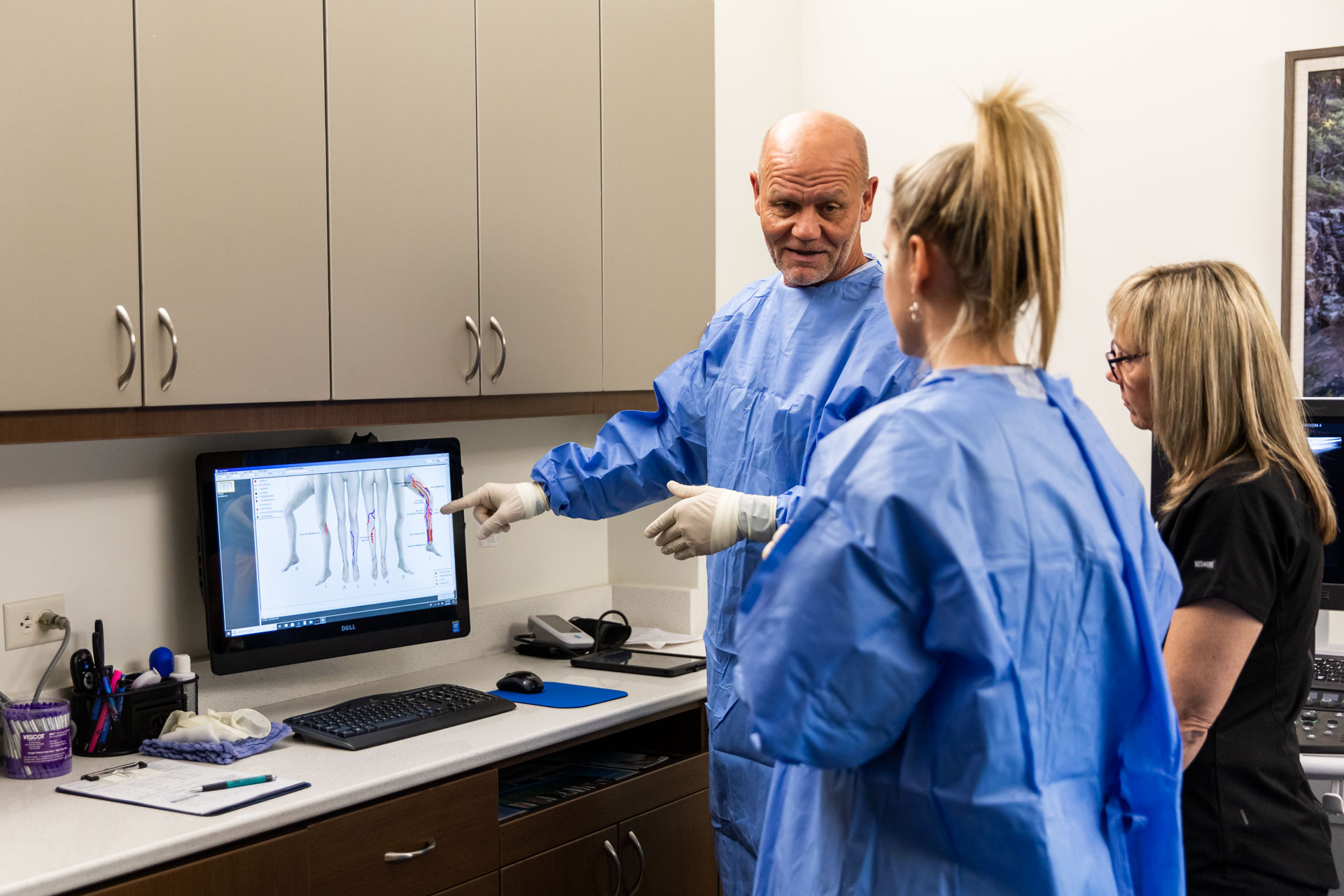
Bandages will be applied where needed to cover and protect the incision, and you will need to wear compression stockings. This will keep steady pressure on the veins in your legs once the ClosureFast™ Procedure is complete. Though you might want to take a few minutes to get comfortable and relax following the procedure, there is no downtime associated with radiofrequency ablation in Rogers.
You may experience some bruising and pain in the treatment area, but this is normal with most medical treatments. The pain and bruising are similar to what you would experience with a flu shot, and patients are welcome to take over-the-counter pain-relievers following treatment.
That said, there are important recovery instructions that we’ll ask you to follow after your vein procedure. These include:
- Walk 5-10 minutes every hour you’re awake.
- Don’t lift over 20 pounds.
- Wear a compression hose for a provider-recommended amount of time (this will depend on the specific procedure).
Though we’ll ask you to follow these instructions carefully, the good news is that they’re only temporary. Usually, patients can expect to follow these instructions for 10 to 14 days following their treatment. Additionally, each patient will receive a list of phone numbers to contact with any questions or concerns, including Dr. Haney’s phone number.
Improving Your Venous Health Without Any Procedures
Though conservative care isn’t an alternative to necessary surgery, there’s a lot you can do without involving a vein specialist to improve your vein health and prevent the need for radiofrequency ablation long-term. After all, conservative care and vein-health consciousness play a massive part in preventative care for vascular diseases and circulatory weakness. So if you are noticing some of these symptoms, with enough work and the right support systems, you can get better.
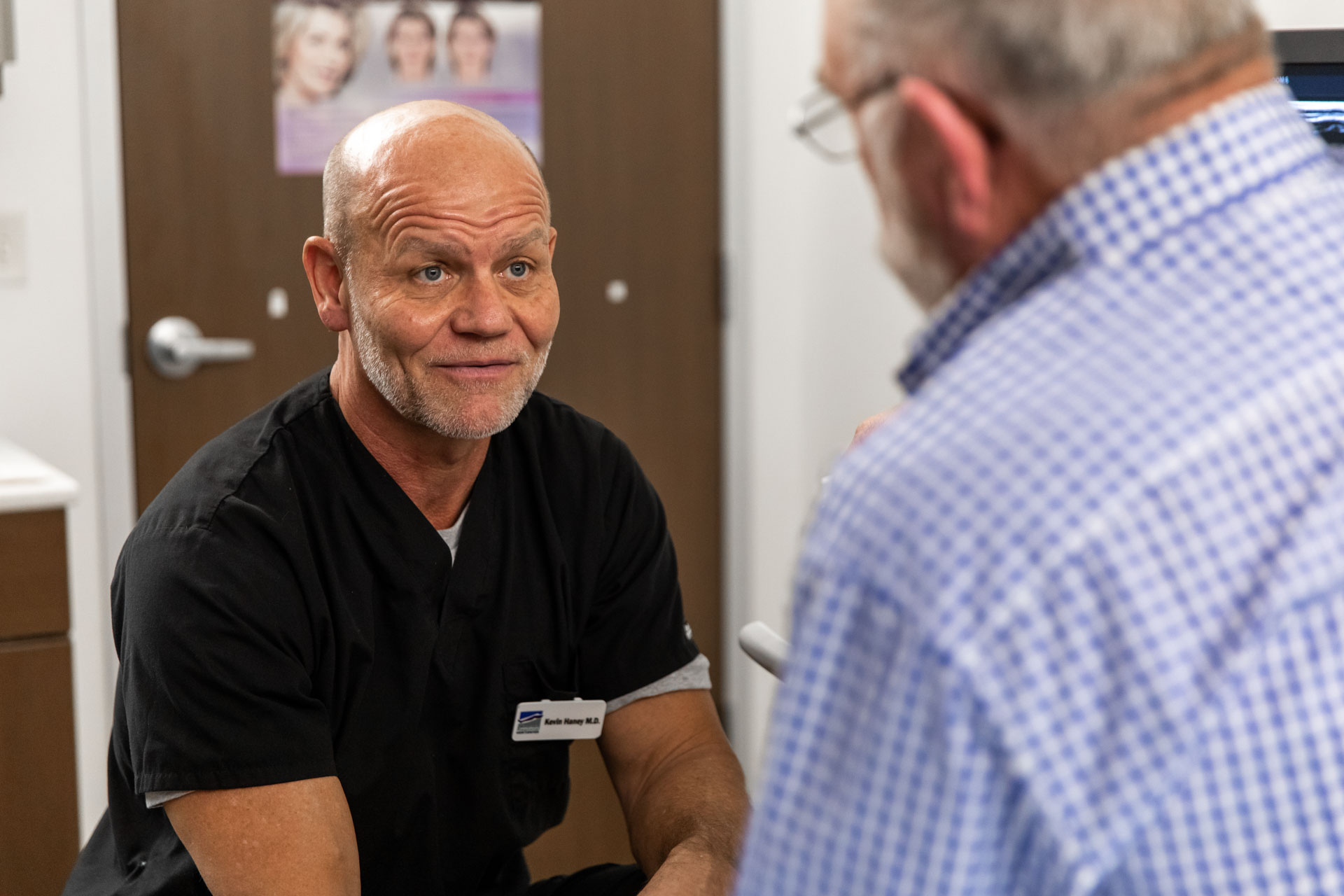
So what all is there for you to do?
Our advice isn’t fun, and it’s certainly not glamorous, but it is simple: take care of your body.
Make sure not to smoke, consume less salt, watch your blood pressure and cholesterol levels, and lose weight if necessary. Much of the stress we place upon our circulatory system is, with attention, easily fixed.
Making health-conscious choices can be the difference between a robust, healthy circulatory system and unwanted pain and achiness managed through repeated vein treatments.
If you’re looking for more specific steps you can take to improve your vein health, here are a few activities you can do to improve venous insufficiency and overall circulation:
- Exercise. Exercising is a great way to improve venous insufficiency, as it gets blood flowing which can mitigate blood pooling in your veins. Walking and cardiovascular exercise are especially beneficial.
- Wear compression stockings. Compression socks or stockings apply constant light pressure to your legs, gently forcing blood up the veins in your legs through the applied pressure. Compression stockings may help alleviate the blood reflux that leads to discomfort.
- Elevate your legs. Elevating your legs while sitting down can naturally help the blood flow toward the heart, as your veins won’t have to work against gravity. This can improve circulation and lessen blood reflux in your legs.
Note: It’s important to remember that none of these behaviors should replace consulting a healthcare provider or vein specialist if you are worried about your vascular health.
Learn more about conservative management for leg veins →
Turn to the Ozark Regional Vein & Artery Center
If you’re looking to undergo a vein ablation procedure in Rogers, come to the Ozark Regional Vein & Artery Center. Our experience and growing suite of care options allow us to guide you toward lasting wellness solutions for a happier, healthier life.
We are a premier practice in Northwest Arkansas for all the highest-quality vein treatments available. Dr. Haney, Dr. Stout, and the expert staff have over 500 years of combined experience in the industry. Patients come to Dr. Haney from all over Northernwestern Arkansas, from Fayetteville to Bentonville, to ensure they receive the best concierge-level care and leg vein procedures available.
After all, helping people is what we do, and it is our mission to provide the people of Northwestern Arkansas and beyond with the absolute best care possible. Our ever-expanding areas of expertise and commitment to patient education help us to achieve meaningful results for our patients each and every time.
Take the first step on the road to recovery with our Virtual Vascular Screening Tool or schedule a consultation. We also hold regular free screening events. Sign up for our newsletter to be notified of our free public events and other practice specials!

